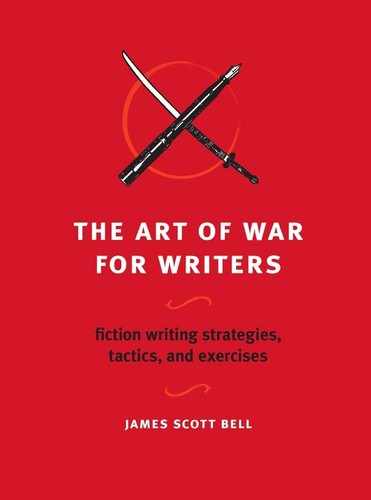
42
13
A writer must always be
prepared to break through
“the wall.”
We all reach points in our writing that are like “the wall”
marathon runners experience. It seems we can’t go on,
and we start to wonder if we ought to just scotch the
whole writing thing. (To “scotch” means either to [a] give
it up; or [b] drink it into oblivion. I recommend neither).
Be intentional about fi nding creative ways to bust
through the wall. Here are a few of my own.
write anything
Write something that is not your novel. Write a jingle for
a commercial. A free-form poem about your car. A letter
to the editor. Take inspiration from Malcolm Bradbury,
in Unsent Letters: Irreverent Notes From a Literary Life:
I write everything. I write novels and short
stories and plays and playlets, interspersed with
novellas and two-hander sketches. I write histo-
ries and biographies and introductions to the dif-
fi culties of modern science and cook books and
books about the Loch Ness monster and travel
Z4273i_039-065.indd 42Z4273i_039-065.indd 42 9/28/09 9:21:52 AM9/28/09 9:21:52 AM

43
books, mostly about East Grinstead. … I write
children’s books and school textbooks and works
of abstruse philosophy … and scholarly articles
on the Etruscans and works of sociology and an-
thropology. I write articles for the women’s page
and send in stories about the most unforgettable
characters I have ever met to Reader’s Digest. … I
write romantic novels under a female pseudonym
and detective stories … I write traffi c signs for the
AA and “this side up” instructions for cardboard
boxes. I believe I am really a writer.
behold it
Ray Bradbury was writing the screenplay for John Huston’s
fi lm version of Moby-Dick. With the script deadline loom-
ing, Bradbury was stuck. And increasingly desperate.
So he woke up one day and looked at himself in the
mirror. “Behold, Herman Melville!” he said. Then he sat
down and fi nished the script.
Take one of your favorite writers, preferably one who
has written a book in your genre, look in the mirror, and
say, “Behold, !”
Then sit down and write.
make music
I play the ukulele. Badly. But I like it. It uses a different
part of my brain, even though I’m not wired for music.
Z4273i_039-065.indd 43Z4273i_039-065.indd 43 9/28/09 9:21:52 AM9/28/09 9:21:52 AM

44
I strum “Yes Sir, That’s My Baby” or “By the Light
of the Silvery Moon,” and ten minutes later, I’m ready
to write again. Perhaps for no other reason than to shut
myself up.
It works. Playing an instrument, even badly, fi res off
neurons of creativity in the brain.
exercise
Take a nice, long walk. Don’t think about your book.
Have a little notebook or recorder with you.
You’ll fi nd the “boys in the basement” sending stuff
up. When they do, write it down, and keep walking. (Note:
I love Stephen King’s metaphor of the “boys in the base-
ment” from his book, On Writing. It refers to the writer’s
subconscious mind. Prompting the boys to do their work
is one of the best ways to get through a wall.)
randomize
Open a novel at random. Look at the fi rst complete line
on the left-hand page.
Put that line in your book, and start a scene with it.
After you’ve written the scene, cut the fi rst line and
substitute one of your own.
Z4273i_039-065.indd 44Z4273i_039-065.indd 44 9/28/09 9:21:52 AM9/28/09 9:21:52 AM
..................Content has been hidden....................
You can't read the all page of ebook, please click here login for view all page.
